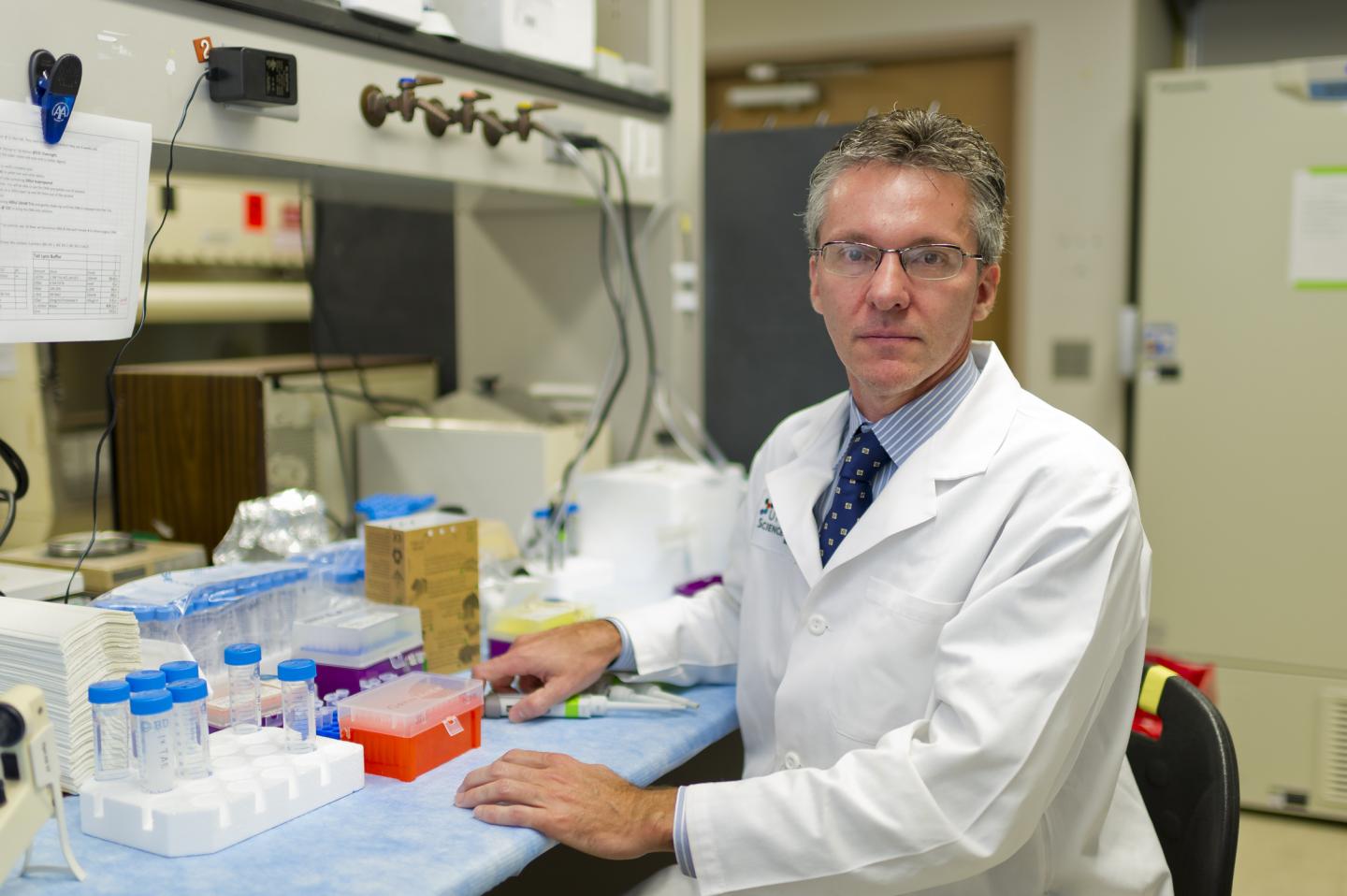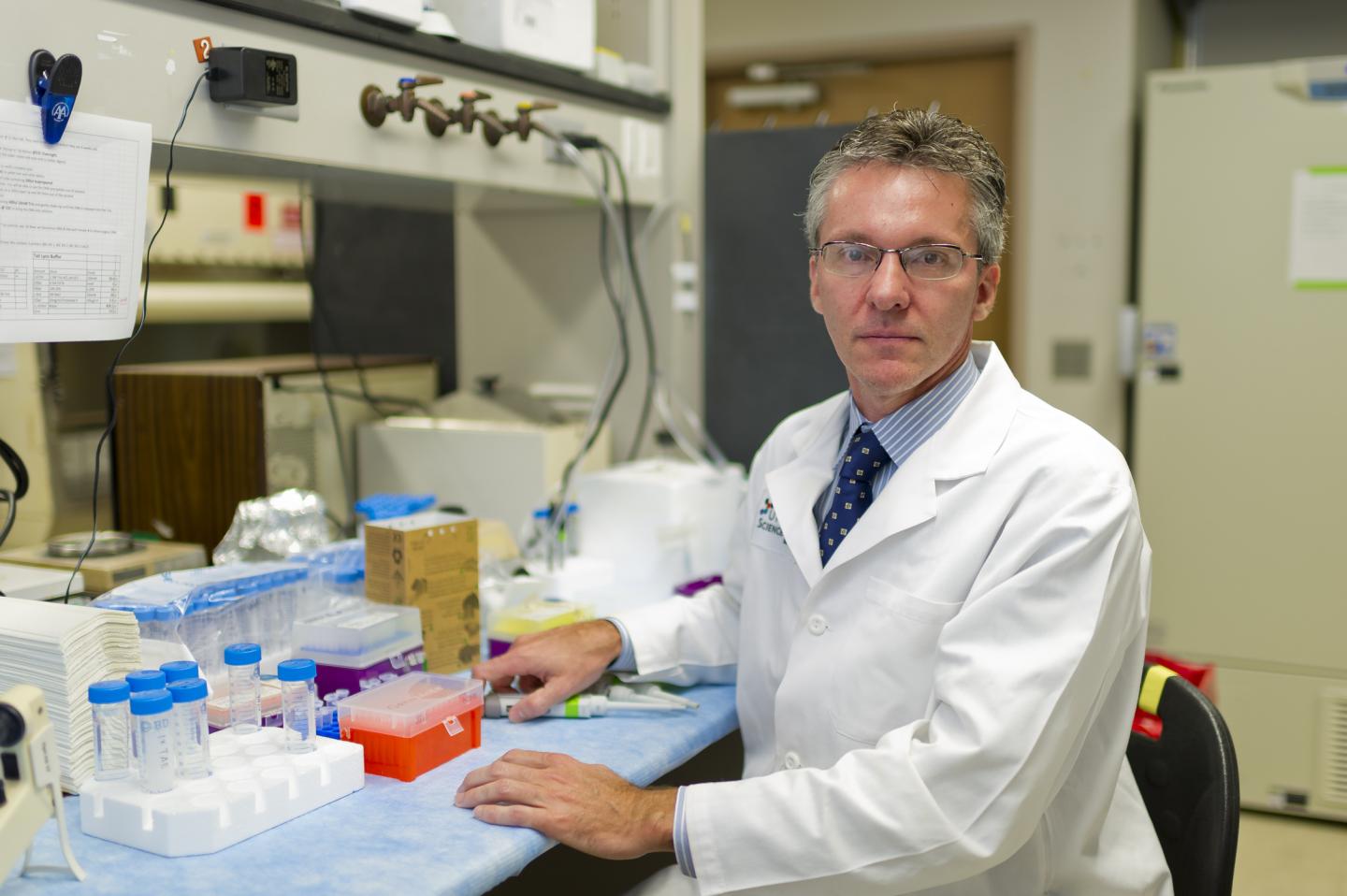
Credit: UT Health San Antonio
SAN ANTONIO, Texas, U.S.A — UT Health San Antonio researchers discovered epigenetic changes that contribute to one-fifth of cases of acute myeloid leukemia (AML), an aggressive cancer that arises out of the blood-forming cells in bone marrow.
The mutations also play a role in a large majority of low-grade gliomas, which are among the most-treatable brain tumors.
The UT Health scientists describe the finding in this week's issue of Cancer Cell.
"The best way to treat a cancer is to understand it," said Ricardo C.T. Aguiar, M.D., Ph.D., professor of medicine at The University of Texas Health Science Center, now called UT Health San Antonio. "We have added to the understanding of a broad swath of cancers that carry what is called the IDH mutation."
Cancers classified by genetic defect
Dr. Aguiar, a hematology-oncology researcher and member of the UT Health San Antonio Cancer Center, is senior author of the study. He said in the future cancers will be classified not by where they are located but by their genetic defect – such as the IDH mutation. IDH is short for isocitrate dehydrogenase.
The UT Health team found that IDH mutations alter an epigenetic process called RNA methylation, which leads to deregulation of hundreds of other genes and processes inside the tumor cell.
Changes that amplify — or silence — genes
Epigenetic modifications change gene activity but don't structurally change the body's genetic blueprints. Diet, aging, environmental exposure and other factors can prompt epigenetic changes that amplify or silence certain genes.
A drug that inhibits the IDH mutant enzymes is in non-UT Health-related clinical trials. The UT Health discovery provides evidence for why the drug may help patients with AML and low-grade gliomas.
A difficult-to-treat form of leukemia
"Acute myeloid leukemia remains a very difficult-to-treat tumor and, unfortunately, the majority of patients still die of their disease," Dr. Aguiar said. "In this paper, in addition to sophisticated genetic models created in our lab, we also studied primary AML samples to demonstrate that, in the very IDH-mutant tumors from the patients, we detected this change in RNA methylation. By better understanding how the IDH-dependent cancers work, we may be able to fine-tune future therapies and improve survival."
###
The work in Dr. Aguiar's lab was co-led by postdoctoral fellow Sara Elkashef, Ph.D., and Research Scientist An-Ping Lin, M.D. Patricia Dahia, M.D., Ph.D., professor of medicine at UT Health San Antonio, and Heinz Sill, M.D., University of Graz, Austria, collaborated with Dr. Aguiar's group in this project.
This research was funded by an award from the Cancer Prevention & Research Institute of Texas. Dr. Aguiar is also funded by the Leukemia and Lymphoma Society.
Learn more about acute myeloid leukemia from the UT Health San Antonio Cancer Center.
For current news from the UT Health Science Center San Antonio, now called UT Health San Antonio™, please visit our online newsroom, like us on Facebook or follow us on Twitter.
About UT Health San Antonio
The University of Texas Health Science Center at San Antonio, with missions of teaching, research and healing, is one of the country's leading health sciences universities and is now called UT Health San Antonio™. UT Health's schools of medicine, nursing, dentistry, health professions and graduate biomedical sciences have produced more than 33,000 alumni who are advancing their fields throughout the world. With four campuses in San Antonio and Laredo, UT Health has a FY 2017 revenue operating budget of $806.6 million and is the primary driver of its community's $37 billion biomedical and health care industry. For more information on the many ways "We make lives better®," visit http://www.uthscsa.edu.
Media Contact
Will Sansom
[email protected]
210-567-2579
@UTHealthSA
Sidebar Shop
Original Source
https://news.uthscsa.edu/team-uncovers-novel-epigenetic-changes-leukemia/ http://dx.doi.org/10.1016/j.ccell.2017.04.001





